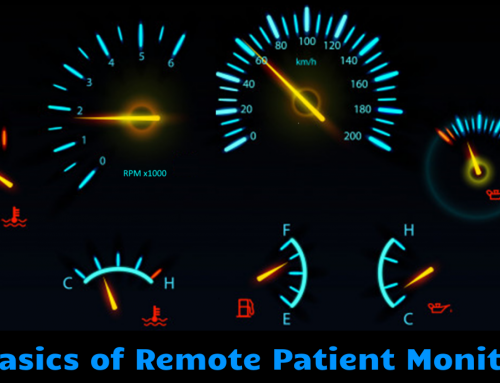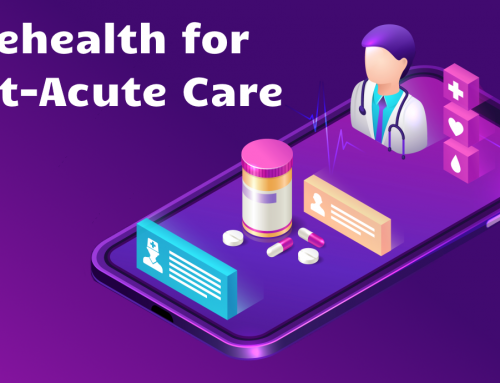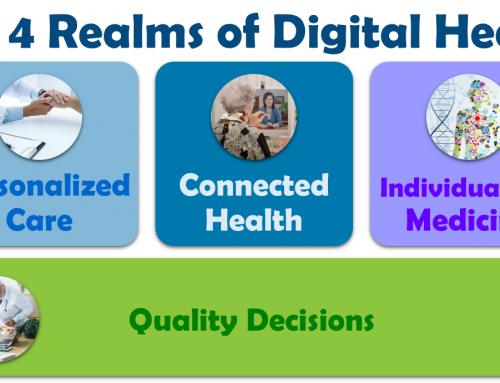The dawn of a new year is always a great opportunity to start afresh, resolving to not let another year pass without making good on last year’s promises and insights.
For healthcare delivery organizations I declare it of the utmost importance for 2020 to develop and embrace a Digital Health Strategy that defines where and how digital health solutions should be leveraged.
I define Digital Health as the provision of care and its associated processes enabled and supported by digital technologies. In their most useful application, Digital Health solutions improve the efficiency and efficacy of care decisions and of the delivery of care.
As I laid out a few weeks ago, there is an avalanche of digital health solutions barreling toward us. Health systems thus need to improve their ability to quickly evaluate, validate, and deploy digital health solutions.
The most successful healthcare organizations I have worked with embrace the following three resolutions:
- Have the courage to stop digital health projects that are not delivering on their promised outcomes.
- Have the audacious goal to transform their delivery of care through digital health.
- Allocate qualified resources to digital health adoption
The Courage To Stop Projects
The single word that most successful entrepreneurs use is “No”. Only “No” makes room to allow successful entrepreneurs — and successful companies — to focus on the one thing or the critical few things that will make a difference right now.
As this article’s picture illustrates, it is not only important to declare new resolutions (the domino bricks to the right) , but to first make room for the new ways by stopping the old ways that are not working and that are bringing the system down. Similarly most new habits leading to improvement can only form when old habits leading to dysfunction are unlearned.
To free up resources (time, people, and money) to make room for leveraging digital health solutions, great health systems measure the performance of their initiatives and consciously stop those that are not delivering.
One step into this direction is to establish an Enterprise Project Management Office (outside of IT!) that manages all projects that affect more than one department or fall under the connected health or individualized medicine umbrella. Only through central management and accountability can the inefficiencies of flailing enterprise projects be made visible (contact me to learn more).
Transform Through Digital Health
The second resolution is the insight that in order to stay relevant in this time of rapid innovation your organization needs to embrace innovation and harness it, put it under your control. As a reminder, Uber, Air BnB, LinkedIn, Twitter, Snapchat, Facebook, etc. did not exist in their current form even 15 years ago, the typical time it takes a physician to become a full-fledged, established physician. And if you don’t take control, others (e.g., Amazon Care, OneMedical, CVS MinuteClinic) will do so for you to bring innovation to the patients that expect it.
The leaders in the field (and those wanting to stay relevant) very intentionally embrace digital health as a way to transform the way they are delivering care and practicing medicine. In its essence, healthcare is about making decisions about a diagnosis and about the appropriate treatment and then delivering that treatment. And numerous digital health solutions focus on improving the efficiency and efficacy of those key care processes.
As an example Mercy in Missouri established in 2015 the world’s first virtual care center, taking the use of telehealth technologies to a whole new level. At last count its service offerings have grown beyond 12, ranging from TeleStroke to SpecialtyConsults, from virtual sepsis screening to TeleICUs. Here is a leader who is investing into the future, while continually improving their traditional care model, too, and augment it with the new virtual care services.
Allocate Qualified Resources
Just as you wouldn’t hire a plumber to fix your heating system (though he could) or just as in the early days of solar you could not just hire any electrician to maintain your solar system, such is the case with leading digital health adoption.
Digital Health adoption is, in most cases, very different from the standard health technology implementations of the past decades. In most cases, digital health solutions are used to create distinctly new clinical service offerings and most of the solutions are highly specialized to each service. This requires systems thinking, clinical workflow design, clinical service marketing, agile project management, and organizational change management skills that are rarely available in healthcare organizations.
It is thus crucially important that a forward-thinking healthcare organization leverages the expertise of those who have been involved in a broad variety of digital health adoptions and possess the necessary skills. While you may not find a full-time employee to lead your efforts, you can tap into the expertise of advisors — like myself or the team of experts at Ingenium Digital Health.
Into the Unknown
The next decade holds much promise and much change in store for healthcare and it behooves leaders of our incumbent healthcare systems that serve most of the US’s population to fully embrace digital health before others do.
As with most resolutions (exercise more, lose weight, journal every day, call mom once a week) they are not pressing, but rather aspirational, addressing what’s important and not (yet) urgent. You don’t want to wait until digital health adoption becomes critical, so I urge you now to declare your digital health resolutions today and let everyone in your organization know that you are committed to the future of healthcare.








To receive articles like these in your Inbox every week, you can subscribe to Christian’s Telehealth Tuesday Newsletter.
Christian Milaster and his team optimize Telehealth Services for health systems and physician practices. Christian is the Founder and President of Ingenium Digital Health Advisors where he and his expert consortium partner with healthcare leaders to enable the delivery of extraordinary care.
Contact Christian by phone or text at 657-464-3648, via email, or video chat.









Leave A Comment